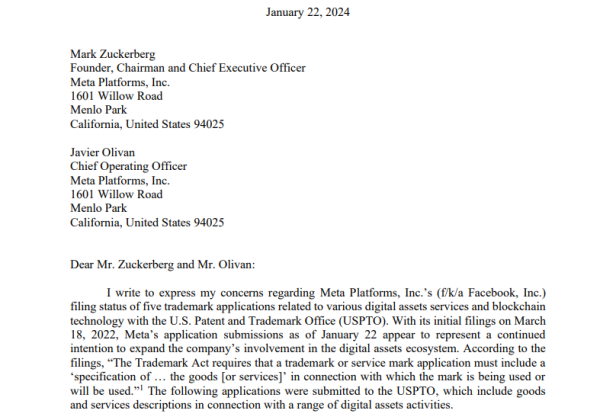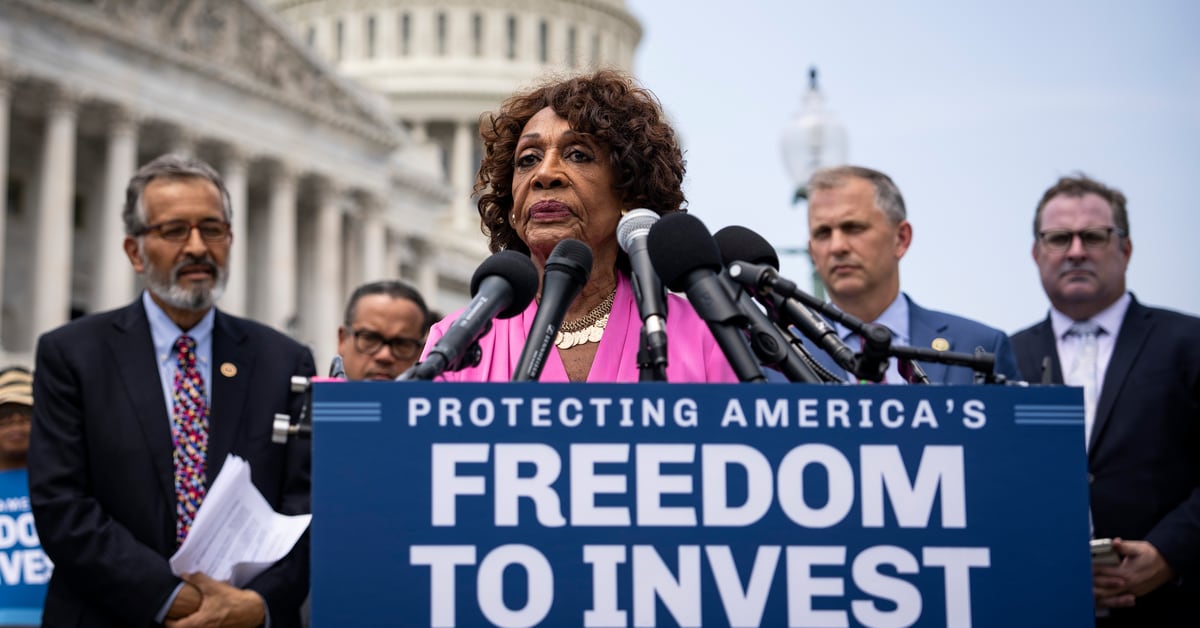Silicon Valley giant Meta, formerly known as Facebook, is back in the crypto spotlight after a quiet filing with the US Patent and Trademark Office (USPTO) hinted at renewed ambitions in the digital asset space. This comes as a surprise, considering Meta’s previous assurances to Congress of halting all cryptocurrency-related endeavors.
Crypto Trademark Shift Sparks Congressional Concerns
The company submitted five trademark applications encompassing a range of blockchain and crypto-related services, from social networking to trading platforms. This sudden shift has raised eyebrows, particularly on Capitol Hill. Congresswoman Maxine Waters, Chair of the House Financial Services Committee, has fired off a letter to Meta CEO Mark Zuckerberg and COO Javier Olivan demanding answers.

These recent trademark filings raise serious concerns about Meta’s commitment to transparency and its potential impact on the financial landscape, stated Waters in a press release. The lawmaker said they need clear answers about Meta’s intentions and plans, especially in light of their previous assurances to the committee.
Meta’s foray into digital currency has been rocky, to say the least. Their ambitious Libra project, initially envisioned as a stablecoin pegged to major currencies, faced fierce opposition from regulators and lawmakers, including Waters. The project eventually fizzled out in 2021, with its assets sold to Silvergate Bank.
Now, with these new trademark filings, questions are swirling about Meta’s true motives. Are they planning to resurrect a rebranded Libra or launch entirely new crypto ventures? Could their Metaverse ambitions, heavily reliant on virtual economies, be driving this renewed interest?
Waters Urges Regulations Amid Big Tech’s Financial Influence
Waters’ letter underscores the broader concerns surrounding Big Tech’s growing influence in the financial sector. The lack of comprehensive regulations for digital assets creates a Wild West environment where tech giants like Meta could potentially wield immense power. Consumer protection, privacy, and financial stability are all at stake, according to Waters and other critics.
The absence of clear rules of the road in the digital asset space poses significant risks, she stated. She added that it’s imperative they establish a robust regulatory framework to ensure responsible development and prevent potential harm to consumers and the financial system.
Meta has yet to publicly respond to Waters’ inquiry or the media buzz surrounding their trademark filings. Their silence only amplifies the concerns, leaving observers to speculate about the company’s next move in the ever-evolving world of cryptocurrencies.
Whether Meta emerges as a responsible player or stumbles into another regulatory quagmire remains to be seen. One thing is certain: their recent actions have reignited the debate about Big Tech’s role in shaping the future of finance.
Featured image from Shutterstock





